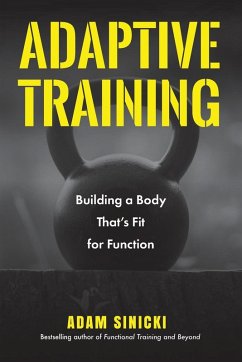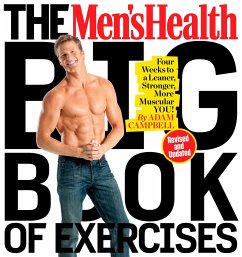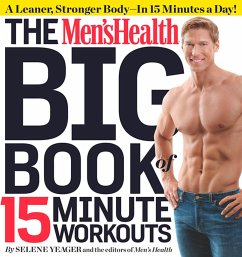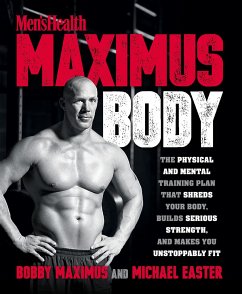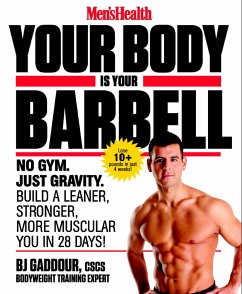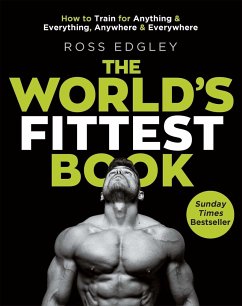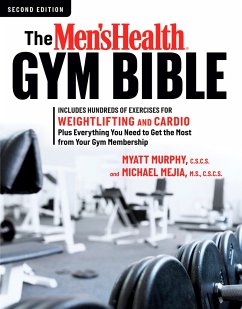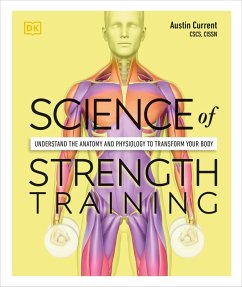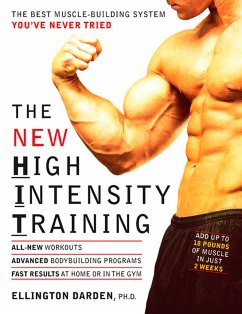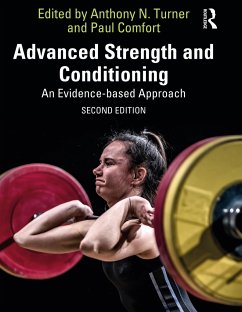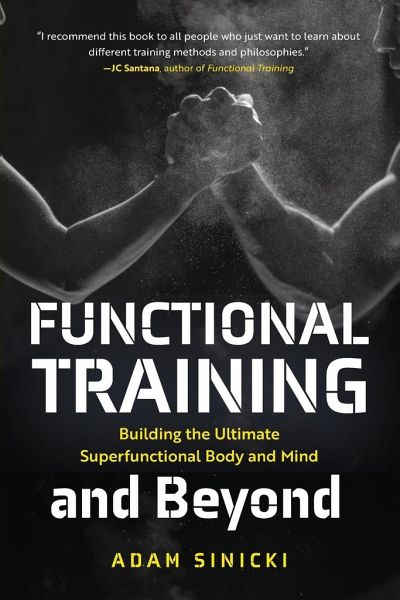
Functional Training and Beyond
Building the Ultimate Superfunctional Body and Mind (Building Muscle and Performance, Weight Training, Men's Health)

PAYBACK Punkte
9 °P sammeln!
Train Like a Superhero "I recommend this book to all personal trainers, training geeks, and people who just want to learn about different training methods and philosophies.” ―JC Santana, author of Functional Training #1 Best Seller in Physical Education and Coaching Body and Brain Training Designed to Unlock Your Amazing Hidden Potential Change your life. Many of us have forgotten how to move correctly. We live with muscular imbalances, constant pain, and low energy. Adam Sinicki is on a mission to change this. He is best known for his YouTube channel “The Bioneer”, where he provides...
Train Like a Superhero "I recommend this book to all personal trainers, training geeks, and people who just want to learn about different training methods and philosophies.” ―JC Santana, author of Functional Training #1 Best Seller in Physical Education and Coaching Body and Brain Training Designed to Unlock Your Amazing Hidden Potential Change your life. Many of us have forgotten how to move correctly. We live with muscular imbalances, constant pain, and low energy. Adam Sinicki is on a mission to change this. He is best known for his YouTube channel “The Bioneer”, where he provides expertise on functional training, brain training, productivity, flow states, and more. Be better than just functional. Currently, functional training is exercise as rehabilitation. It aims to restore normal, healthy strength and mobility using compound and multi-faceted movements. In Functional Training and Beyond, Adam reveals how to become “better than just functional.” We can improve our physical performance and our mental state. We can train to move better, think more clearly, feel energetic, and live more efficiently. Advanced way to train. Until now working out has had one of two goals─get bigger or get leaner. But why are those the only goals? What if there was a third, practical, healthy and exciting way to train our body and our mind? Learn how we can train our brains just like our bodies, and how to incorporate this into a comprehensive, well-rounded program. Discover: * New ways to train body and mind * Training for greater mobility, less pain, improved mood, and increased energy * The fun of training with kettlebells, calisthenics, clubbells, street workouts, animal moves, handstands, rope climbs, isometrics, and more Fans of Overcoming Gravity, You Are Your Own Gym, The World’s Fittest Book , New Functional Training for Sports, or Calisthenics for Beginners ―discover a new and better way to train both your body and mind in Functional Training and Beyond!






